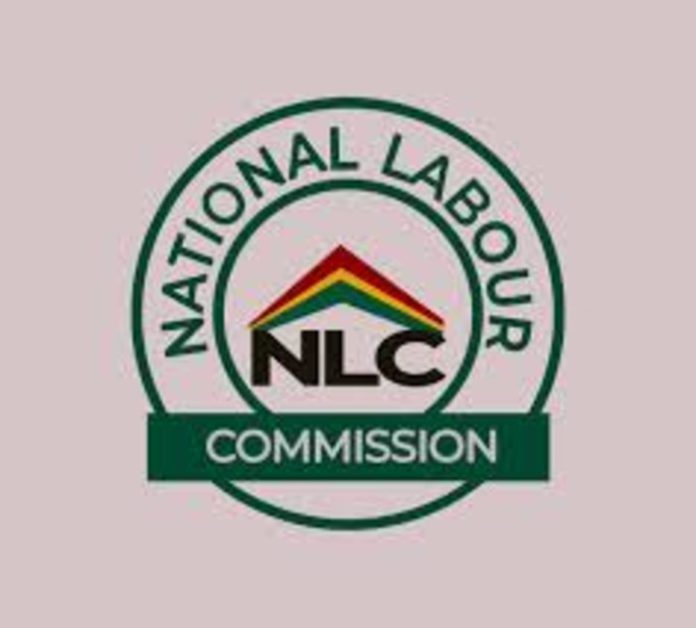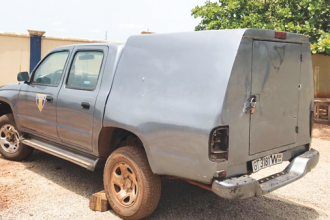Special Prosecutor Nominee Kissi Agyebeng has emphatically said he had no role to play in the botched Agyapa deal.
He described claims that he was a surrogate for a law firm involved in the controversial Agyapa deal as “unfortunate and uninformed”.
“I wasn’t involved in the Agyapa deal. I was nowhere near it. Indeed, until it started coming up, I didn’t even know what it was. Whoever says I am a surrogate of a law firm or implicates me in the Agyapa transaction clearly does not know me.
“If you know me, you wouldn’t make such allegations. All these things that came up, I took them as coming from uninformed positions because I was not involved in the Agyapa transaction in any form or manner,” he told Parliament’s Appointments Committee on Thursday, July 22.
In April this year, the former Special Prosecutor Martin Amidu described the nominee as a surrogate of people who defended the controversial Agyapa Mineral royalties deal.
“The Agyapa Royalties Transaction records show the role the President’s cousin who established Africa Legal Associates, and Asaase Radio played with White & Case LLP, of London, one of the foreign law firms in the suspected corruption transaction.
“It must, therefore, be worrying to any patriotic Ghanaian not afraid of the culture of silence to see Asaase Radio undertaking political propaganda beginning on April 25, 2021 to April 26, 2021 to prepare the minds of the Ghanaian and International public to accept the surrogate of the alter ego of the Asaase Radio station and Africa Legal Associates as the Special Prosecutor as mandated under section 4(1) of the Office of the Special Prosecutor Act, 2018 (Act 959).
“In the attempt of persons implicated in the Agyapa Royalties Transaction corruption assessment report to pressurize the President to appoint their surrogate as the Special Prosecutor to safeguard their interests, the online reportage of Asaase Radio resorted to direct fabrications, lies, and omissions against me in its narration of the reasons for my resignation,” Mr Amidu wrote.
In response to the specific claim, Mr Agyebeng said his relationships with different people do not stop him from investigating cases involving them.
He said he will stay within his mandate and be guided by the Act that established his office to probe matters impartially.
“As for relationships, as I just disclosed, the fact that I was so close to you at some point in our lives will not give you a free pass because of that relationship and that is why I am here.
“And if there is a matter I am not going to say because I know one person or the other I am not going to investigate. I certainly will investigate.
“Indeed until it started coming up I didn’t know what it was. For the record that is the truth. And so am no one’s surrogate as I said earlier. I am my own man and I prefer to wear my own shoes. If the law firm was named, it would have even been fair to me. But if you say I am a surrogate of a law firm, clearly you don’t know me. I run my own law firm and I have been running it since 2014,” he added.
The Agyapa deal
On August 14, 2020, Parliament approved the Agyapa Minerals Royalties Investment Agreement and four related documents to allow for the monetisation of Ghana’s future gold royalties.
In the deal, 75.6% of royalties of at least 16 gold mining companies will go into Agyapa Royalties Ltd.
The company will list on the London Stock Exchange and the Ghana Stock Exchange and float 49% shares valued at $1bn.
It hopes to get investors to buy shares while Agyapa Ltd collects gold royalties from future mineral resources to pay dividends to shareholders.
Agyapa Royalties Ltd is also incorporated in a tax haven, British channel island, Jersey, where companies don’t pay corporate tax. It means the company will enjoy considerable tax reliefs.
But a wave of red flags raised by the 22 civil society organisations and the minority in Parliament compelled the government to hasten with caution.
The voices against the deal raised concerns about potential value for money, the registration of the company in a tax haven, as well as the lack of consultation as the minority walked out on the deal on the day majority passed it.
With the minority raising hell while the CSOs threaten legal action, the government suspended the implementation of the deal when the Special Prosecutor’s Office stepped in to probe the deal on suspicion of allegations of corruption.
The former Special Prosecutor Martin Amidu, in a letter dated September 10, made a formal request to parliament to provide all the information regarding the approval of the deal by the House.
This compelled the government to temporarily suspend the deal.
Almost two months later, Mr Amidu, in a 64-page document, raised questions about the processes leading to the selection of transaction advisors for the Agyapa deal, which he described as “opaque”.
What Amidu’s report said
- The Special Prosecutor’s work on the Agyapa deal was not an investigation. It is an audit to ensure the agreement complied with the law. The difference is that an investigation would suggest criminality.
- The appointment of the Transaction Advisor in the Agyapa deal should have been brought to parliament for approval because it is an international economic transaction. It is international because the government engaged a South African firm, IMARA Corporate Finance Limited (Pty), as a Transaction Advisor.
- In selecting the transaction advisor, the company had to get a local partner. IMARA selected Databank, but Special Prosecutor says this is a “decoy”.
- The report wants to know how Databank is being paid as a local partner. He said this arrangement is “opaque”, which raises “reasonable suspicion of bid-rigging, and corruption activity, including the potential for illicit financial flows and money laundering.”
- There is a zero-chance that the advice given by the Transaction Advisor would be neutral and impartial because of individual interests at the Ministry of Finance and IMARA/Databank.
- Chief Director of the Ministry of Finance should have signed the agreement not the Deputy Minister of Finance, Charles Adu Boahen. This is because the Public Financial Management law gives the Chief Director that power to bind the Finance Ministry to an agreement.
- Several service providers and underwriters, including Africa Legal Associates, the legal firm owned by the president’s cousin Gabby Otchere Darko, may not have been chosen on merit. This is because they were not selected in accordance with the Public Procurement Authority.
- He believes the selection of the governing board members of the Minerals Income Investment Fund (MIIF) could not meet the litmus test of the prevention of corruption. The Chairman and the other Board members indicated “a real Likelihood of almost all of them being affected by partisan considerations” in the discharge of their duties.
- Parliament did not properly scrutinize the agreement, and this makes corruption attractive because “the risk is low”.
Fast forward, the deal is back in Parliament for a second review.
















